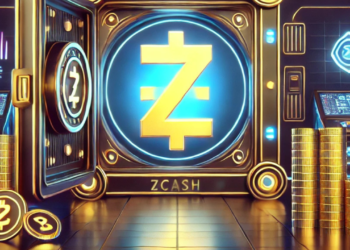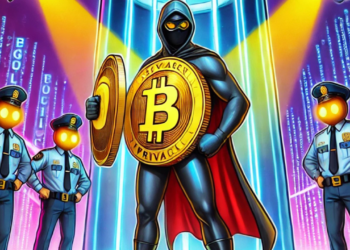The gaming industry is undergoing a massive transformation with the rise of blockchain technology and play-to-earn (P2E) mechanics. Among the leading blockchain gaming platforms is Gala Games, a decentralized gaming ecosystem that empowers players by giving them true ownership of in-game assets.
As blockchain gaming gains mainstream traction, Gala Games has positioned itself as a frontrunner, offering an ever-growing selection of high-quality games while utilizing non-fungible tokens (NFTs) and decentralized governance. But what makes Gala Games unique, and why should investors and gamers pay attention?
In this guide, we’ll explore the Gala Games ecosystem, the GALA token, and how this blockchain gaming platform is shaping the future of gaming.
What is Gala Games?
Gala Games is a blockchain gaming platform that allows players to have full ownership of in-game assets and earn cryptocurrency while playing. Founded by Eric Schiermeyer, co-founder of Zynga (the company behind FarmVille), Gala Games aims to create a decentralized gaming network that prioritizes player control and economic freedom.
Unlike traditional gaming, where players buy virtual goods that are controlled by game developers, Gala Games leverages blockchain technology and NFTs to grant players complete ownership of their assets.
Key Features of Gala Games
✅ Decentralized Gaming Ecosystem – Powered by blockchain and governed by a distributed network of nodes. ✅ True Ownership of In-Game Assets – NFTs allow players to own, trade, and monetize their in-game items. ✅ Play-to-Earn (P2E) Model – Players can earn GALA tokens while playing games. ✅ Cross-Game Compatibility – Some assets and NFTs can be used across multiple games. ✅ Community-Driven Development – The ecosystem is shaped by player votes through a decentralized governance model.
The Gala Games Ecosystem
Gala Games offers a variety of blockchain-based games across different genres, ensuring that players have diverse gaming experiences. Here are some of the most popular titles:
1. Town Star 🌆
- A play-to-earn strategy game where players build and manage virtual towns.
- Players can earn TOWN tokens by completing daily challenges.
2. Mirandus 🏰
- A highly anticipated fantasy MMORPG that allows players to own land, build businesses, and go on quests.
- Land and in-game assets are NFTs that players can trade.
3. Spider Tanks 🕷️🔫
- A PvP battle arena game where players use NFT tanks to compete for rewards.
- Players can upgrade tanks, weapons, and abilities for better performance.
4. Echoes of Empire 🚀
- A space exploration strategy game where players own fleets, mine resources, and expand their empire.
- Features NFT-based ships and in-game economy.
5. Fortified 🏰⚔️
- A tower defense game with NFT-based fortresses and battle strategies.
Gala Games is continuously expanding its gaming portfolio, partnering with third-party developers to build more blockchain-powered experiences.
What is the GALA Token?
GALA is the native cryptocurrency of the Gala Games ecosystem. It serves multiple functions, including:
- Governance – Holders can vote on game development decisions.
- In-Game Transactions – Used to buy NFTs, game items, and upgrades.
- Rewards & Incentives – Players earn GALA tokens through gameplay.
- Node Incentives – Operators of Gala Nodes receive GALA as rewards for maintaining the network.
GALA Tokenomics
- Total Supply: 50 billion GALA (gradually decreasing over time).
- Circulating Supply: Approximately 7 billion GALA (as of 2024).
- Deflationary Mechanism: A portion of tokens is burned to control inflation.
Investors interested in trading GALA can do so on reputable exchanges like MEXC Exchange, which offers deep liquidity and competitive trading fees.
How to Earn GALA Tokens
There are several ways to earn GALA tokens within the ecosystem:
- Playing Gala Games – Earn tokens by completing missions, winning battles, and participating in events.
- Running a Gala Node – Users can set up a Gala Founder’s Node to earn rewards for supporting the network.
- Trading NFTs – Buy and sell in-game NFT assets on the Gala Marketplace.
- Staking & Liquidity Farming – Some DeFi platforms may offer staking options for GALA.
How to Secure Your GALA Tokens
As with any cryptocurrency, securing your GALA holdings is essential. The best way to protect your assets is by using a hardware wallet. Here are two top options:
- Trezor Model One – A cost-effective hardware wallet for securely storing GALA and other cryptocurrencies.
- Trezor Model T – A premium hardware wallet with advanced security features and touchscreen functionality.
By storing your GALA tokens in a cold wallet, you eliminate the risk of exchange hacks and phishing attacks.
The Future of Gala Games
Gala Games is pioneering the future of blockchain gaming, but its success will depend on several factors:
- Game Adoption – As more players enter the ecosystem, demand for GALA tokens and NFTs will rise.
- Developer Partnerships – Collaborations with established game studios could accelerate growth.
- Regulatory Compliance – Future regulations on blockchain gaming could impact Gala’s operations.
- Expanding the Metaverse – Integration with Web3 and the metaverse will shape Gala Games’ long-term vision.
With a strong foundation and a rapidly growing community, Gala Games is well-positioned to lead the play-to-earn revolution.
Conclusion
Gala Games is reshaping the gaming industry by merging blockchain technology, NFTs, and play-to-earn mechanics. By giving players true ownership of in-game assets, Gala is creating a decentralized and economically rewarding gaming experience.
Whether you’re a gamer looking to earn rewards or an investor exploring blockchain gaming opportunities, Gala Games offers a compelling ecosystem worth considering.
To start trading GALA, visit MEXC Exchange, and for maximum security, store your tokens in a Trezor hardware wallet.
Disclaimer: This article is for informational purposes only and does not constitute financial, investment, or legal advice. Cryptocurrency investments carry risks, and you should conduct thorough research before making any financial decisions.










